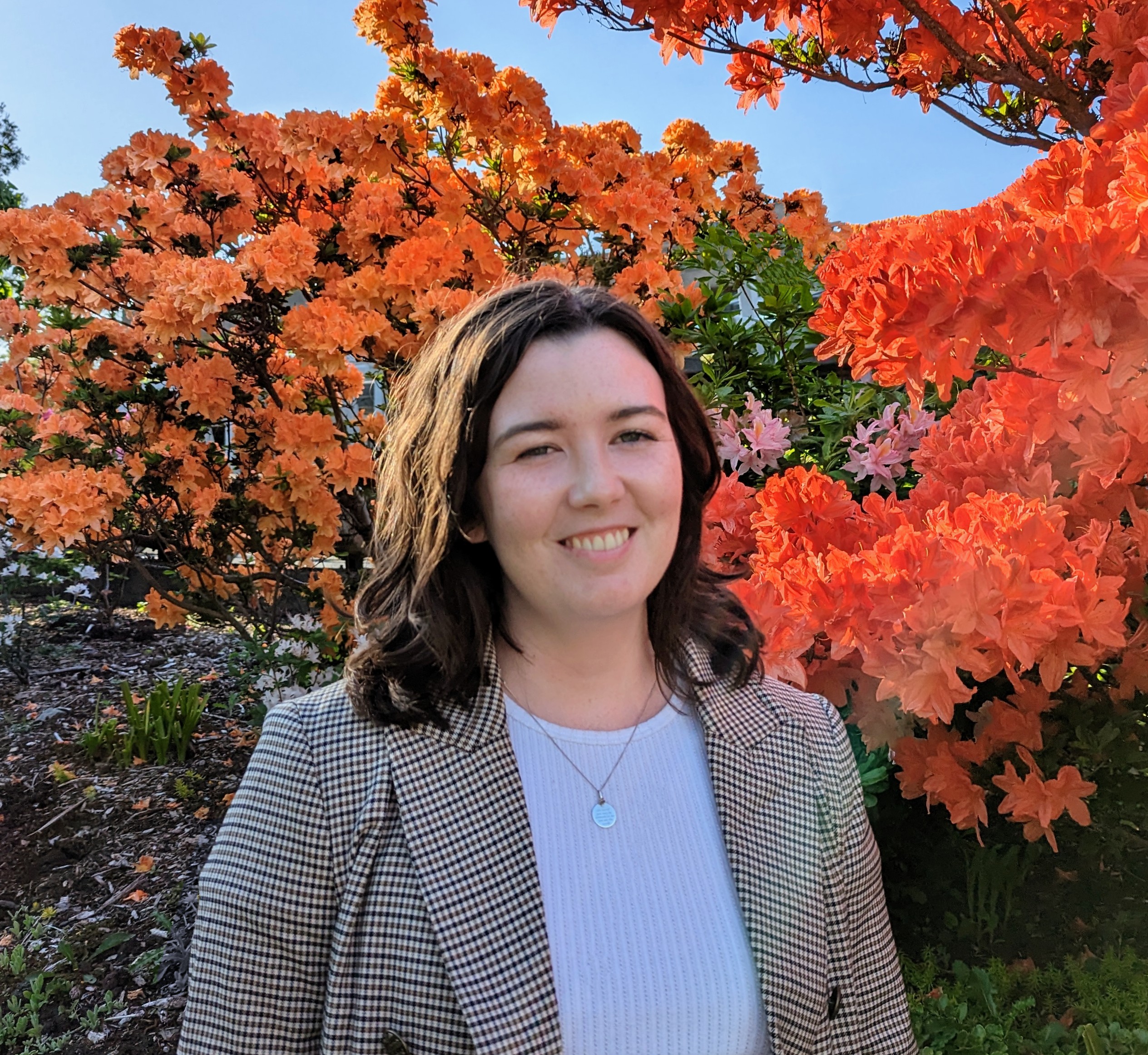Profile: Tianna Killoran
Tianna Killoran is a PhD Candidate at James Cook University in Townsville, Australia. Her thesis focuses on the history of the Japanese Australian community in northern Queensland between 1885 and 1946. Her research project developed after she find out that her hometown — Townsville — was the location of the first official Japanese Consulate in Australia. Wanting to know more, Tianna found herself spending years researching the history of the community surrounding this building.
Through the Nikkei Australia website (chaired by former PWFC artist-in-residence Elysha Rei), Tianna saw the posting for the residency program. From there, Tianna researched the PWFC project, including Landscapes of Injustice, and felt there were strong connections with her own research in Australia. She was inspired to apply for the residency and desired to work with scholars and artists from around the world, each of them focusing on Japanese internment during the war. As an Australian researcher, she was the perfect fit for the residency’s aims to bring together scholars worldwide to work and collaborate together in Victoria.
Tianna’s working paper “Distance and Denial: Administering the Dispossession of Japanese Australians” considers the “administrative perspective of people and property through the records of individuals and internment dossiers, and seeks to understand how administrators and authorities have historically rationalised this process of internment and dispossession in Australia.” Asking the question of what were the consequences and circumstances surrounding property and possessions for Japanese Australians, Tianna was able to use her time in Victoria delving into the scholarship on this topic in Canada. “In Australia, there’s been slightly less of a focus on dispossession during this period, so the residency guided me in asking questions about what happened to the property of these people, and how this occurred.” Tianna says she began her research investigating archives in both Australia and Canada, including the National Archives of Australia and the Landscapes of Injustice database. Many of these records contain case files, government communications, and newspaper clippings.
For three weeks in May 2023, Tianna joined six other scholars and artists in residence in Victoria. When asked about her experience, Tianna simply said “It was an amazing time. It was wonderful to come to Victoria and be immersed in the place and learn local histories.” When discussing it further, she explained that “it was really great to be able to come and spend time with a number of other scholars and artists who are working within this area. In having the opportunity to come and spend time at the University of Victoria, I had the benefit of sharing and discussing ideas and research with other people working on similar research, as well.”
Personally, Tianna felt welcomed and part of a community during her time in Victoria since there are not many people where she is studying in Australia that are working on, or know much about, this period of history. Tianna says that having these conversations with people from across the globe felt, “almost strange and surreal to be able to discuss these histories with scholars and artists from around the world. “It was really good to talk about particulars and details of things that occurred as part of this history. Everyone had their own specialties, insights, and contexts (be it Brazil, Canada, Australia or the US), so it was great to be able to talk about similar research, concepts, and ideas. There were really interesting and useful insights that came from those conversations,” she says.
Looking forward, Tianna is working towards finishing her working paper and have her PhD finalised so she can undertake further research. Afterward, she is planning to continue researching Japanese Australians and how their histories interact with broader, international histories. Tianna’s working paper “Distance and Denial: Administering the Dispossession of Japanese Australians” will be available to read on our website.
This article was written by Kiri H. Powell, from an interview with Tianna Killoran.


 Instagram
Instagram